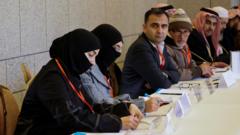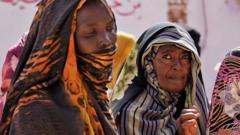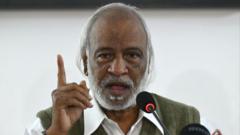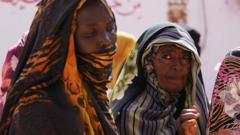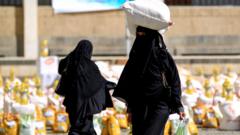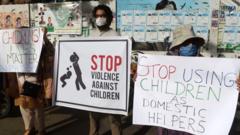The ongoing civil unrest in Myanmar has catalyzed a surge in illegal organ sales, revealing the grim realities faced by impoverished villagers. Many have been forced to consider selling their kidneys as a last resort to clear debts and support their families. Zeya, a local farmer whose story has emerged, represents numerous individuals who have navigated the underground organ trade to meet financial obligations.
**Myanmarese Villagers Turn to Illicit Kidney Sales Amid Economic Collapse**

**Myanmarese Villagers Turn to Illicit Kidney Sales Amid Economic Collapse**
Desperation drives illegal organ trade in Myanmar as villagers resort to kidney sales for financial survival post-coup.
Across the impoverished landscape of Myanmar, Zeya recounts his harrowing journey toward selling his kidney after the military coup in 2021 devastated his community's economy. With his family living in his mother-in-law's home and significant debts weighing him down, he sought help from a broker, ultimately crossing the border into India for the procedure that would change his and another woman's life forever. This tale is not unique; alongside Zeya, a growing number of villagers have found themselves in similar predicaments, highlighting a troubling trend that has swelled within the shadows of legal health systems.
The illegal kidney trade, rampant across Asia, raises critical ethical concerns about human trafficking and exploitation. While such practices are illegal in both Myanmar and India, desperation has blurred the lines of legality for people living in grave poverty. Reports indicate that brokers forge relations between donors and recipients to bypass regulatory scrutiny, revealing a systematic violation of laws intended to protect vulnerable populations.
Myo Win, another potential donor, echoes Zeya's sentiments, explaining how he was deceived into believing that his actions were legitimate. He describes the broker's role in fabricating family ties to evade oversight, further complicating the ethical landscape of this issue. Their stories expose how economic despair, compounded by the civil war, leads to increased poverty, resulting in people resorting to drastic measures for a sliver of financial relief.
The broader implications of this emergence of illegal organ sales are alarming. As Myanmar grapples with soaring unemployment and poverty levels—reaching an estimated 50% of the population—the United Nations Development Program has drawn attention to the dire situation that pushes citizens toward such morally complex choices. This crisis reflects deeper societal failings, a desperate response to a collapsing economy, and a system that fails to provide alternatives for its most vulnerable members.
As this black market continues to flourish, the ramifications of unchecked medical practices and neglect for the health and safety of individuals involved are severe. With the backdrop of widespread poverty and the ongoing political and social disarray in Myanmar, these stories serve as a heavy reminder of the human cost associated with systemic failure and the extreme measures individuals are forced to take to survive. Conversations surrounding policy reform and urgent humanitarian aid are increasingly vital to cultivate an environment where people are not compelled to risk their health and lives for mere financial relief.
The narrative of kidney sales in Myanmar, while specific, resonates in various forms across the globe, pushing for introspection on frameworks of healthcare access, economic stability, and human rights that extend beyond borders.
The illegal kidney trade, rampant across Asia, raises critical ethical concerns about human trafficking and exploitation. While such practices are illegal in both Myanmar and India, desperation has blurred the lines of legality for people living in grave poverty. Reports indicate that brokers forge relations between donors and recipients to bypass regulatory scrutiny, revealing a systematic violation of laws intended to protect vulnerable populations.
Myo Win, another potential donor, echoes Zeya's sentiments, explaining how he was deceived into believing that his actions were legitimate. He describes the broker's role in fabricating family ties to evade oversight, further complicating the ethical landscape of this issue. Their stories expose how economic despair, compounded by the civil war, leads to increased poverty, resulting in people resorting to drastic measures for a sliver of financial relief.
The broader implications of this emergence of illegal organ sales are alarming. As Myanmar grapples with soaring unemployment and poverty levels—reaching an estimated 50% of the population—the United Nations Development Program has drawn attention to the dire situation that pushes citizens toward such morally complex choices. This crisis reflects deeper societal failings, a desperate response to a collapsing economy, and a system that fails to provide alternatives for its most vulnerable members.
As this black market continues to flourish, the ramifications of unchecked medical practices and neglect for the health and safety of individuals involved are severe. With the backdrop of widespread poverty and the ongoing political and social disarray in Myanmar, these stories serve as a heavy reminder of the human cost associated with systemic failure and the extreme measures individuals are forced to take to survive. Conversations surrounding policy reform and urgent humanitarian aid are increasingly vital to cultivate an environment where people are not compelled to risk their health and lives for mere financial relief.
The narrative of kidney sales in Myanmar, while specific, resonates in various forms across the globe, pushing for introspection on frameworks of healthcare access, economic stability, and human rights that extend beyond borders.



